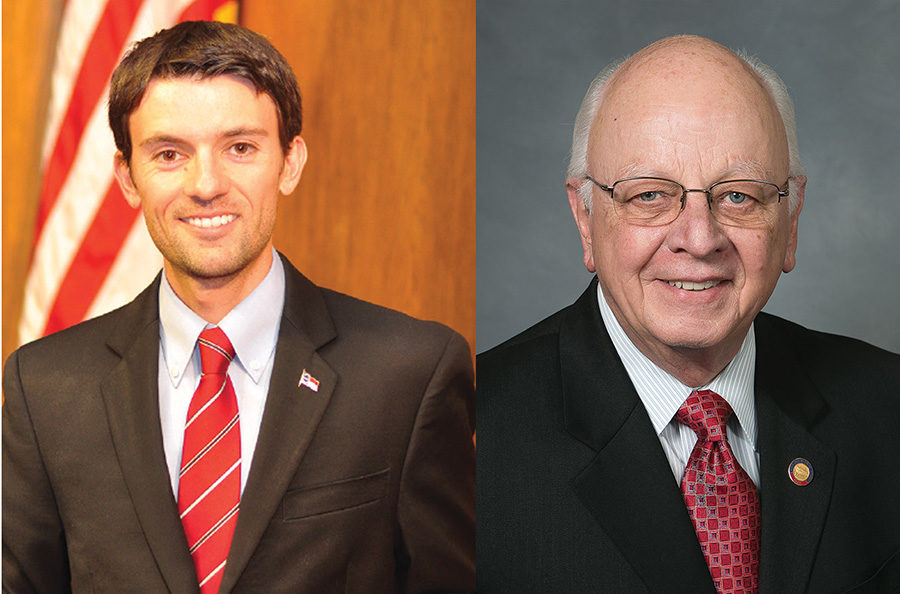The new state legislative districts have now passed the state House and Senate. The governor doesn’t get to weigh in on redistricting, so the new districts became law when they passed. Or they became law at least until three federal judges decide whether to accept them or not.
The three-judge panel had ruled 18 state House and nine state Senate districts illegal because, in the opinion of the judges, they were drawn with too much consideration given to race and diluted the votes of some black voters in those districts because the judges believed the districts contained too many black voters.
What the judges refused to do is tell the state legislators how many black voters in a district is too many.
The state legislators responded by drawing new districts without looking at data on the race of the voters. Redistricting committee members have said that they looked at no racial data in drawing the new districts. Since there is as yet no racial data on the districts, the judges presumably will have to come up with that information themselves and then determine – by the secret formula that evidently is only available to federal judges – whether any of the districts have too many black voters or not.
Since only federal judges have the formula that determines whether or not a district is acceptable, it is also possible that some new districts might not have enough black voters, which is just as bad as too many according to the federal courts.
In Guilford County, people have asked what the Republicans were doing when they placed two prominent Republican state representatives in the same district. District 61 state Rep. John Faircloth and District 59 state Rep. Jon Hardister, who is the majority whip, are double bunked in the new District 57.
Double bunking is when two incumbents are placed in the same district, meaning one of them will lose their seat, and is something the majority party usually does to the minority party, not something it does to its own members.
Hardister, after the House passed the new districts, said that if the districts were upheld by the courts, he would move into the new District 59, which has no incumbent. Hardister noted that the new District 59 includes a large part of the old District 59, which he currently represents.
Hardister said, “I plan to move to the new District 59 and run there.”
He said, “I’m young. I’m single. I invest in real estate. So moving is not that big a deal for me.”
He said he was planning to move to the Stony Creek area in Whitsett and that it had a lot of advantages for him. One was that it is about 30 minutes closer to Raleigh than his current home in the Green Valley area.
He added, “Not paying Greensboro city taxes would be a plus. Our city taxes are relatively high and we just had a de facto tax increase. I love this city. I was born and raised here, but the city needs a new direction.”
Hardister said, “John Faircloth wants to run again and he is a good friend and a great legislator. The simple thing is for me to relocate.”
Hardister said that since he currently represents most of the people in the new District 59, it made sense to move so he could continue to represent them, if they choose to reelect him.
Hardister also said that moving to Stony Creek might help his golf game.
One Greensboro official who currently works with the legislature said he was concerned when he saw Faircloth and Hardister double bunked because Greensboro was gaining more influence in the legislature and he hated to see either Faircloth or Hardister lose their seat because of redistricting.
But as it turns out, if the federal court upholds the districts, both will be running for reelection, except Hardister will have moved into the district he now represents. If nothing else this election stuff can be utterly confusing.
Guilford County will theoretically lose some of its influence in the senate with the redistricting. In the current districts, President Pro Tem of the Senate Phil Berger – who many consider the most powerful elected official in the state – represents a good bit of northern Guilford County. District 30, which will be Berger’s new district, includes Rockingham, Caswell and Stokes counties and a portion of Surry County but none of Guilford County. Republican District 27 state Sen. Trudy Wade, who continues to gain power in the Senate, saw her district change so that it will include the northwest quadrant of Guilford County, but Wade said that the new district will still be a good district for her.
Part of eastern Guilford County will be in the new District 24, currently represented by Republican Sen. Rick Gunn from Burlington. And part of High Point will be in the new District 26, currently represented by Republican District 29 Sen. Jerry Tillman from Archdale. So some might see it as losing one Republican senator and gaining two.
Democratic District 28 state Sen. Gladys Robinson said last week she didn’t like the way the redistricting process was done and she hated to lose Pleasant Garden, where she used to live, from her new district, but from what she could see her new district would be a pretty good district for her.
Other than double bunking Hardister and Faircloth in the new House district 61, the rest of the House districts in Guilford County moved, but the moves don’t appear to be significant except perhaps to the voters who have been moved from one district to another and will be surprised on Election Day next year to see new names on the ballot.

